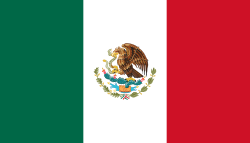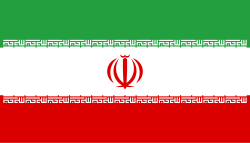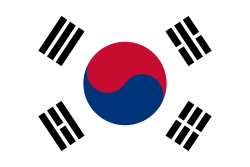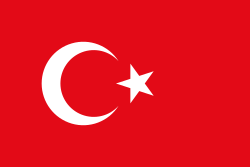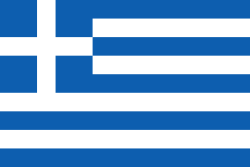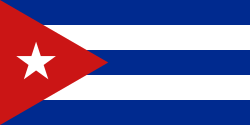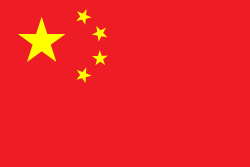Taekwondo na Letních olympijských hrách 2004
| Taekwondo na Letních olympijských hrách 2004 | |||||||||||||||||
|---|---|---|---|---|---|---|---|---|---|---|---|---|---|---|---|---|---|
| Základní údaje | |||||||||||||||||
| Pořadatel | Mezinárodní federace taekwondo Mezinárodní olympijský výbor | ||||||||||||||||
| Dějiště | Olympijský sportovní komplex Faliro Coastal Zone | ||||||||||||||||
| Datum | 25. srpna - 28. srpna 2004 | ||||||||||||||||
| Soutěže | 8 (4 muži, 4 ženy) | ||||||||||||||||
| Startující | 124 (60 žen, 64 mužů) | ||||||||||||||||
| Soutěže | |||||||||||||||||
| |||||||||||||||||
| |||||||||||||||||
Taekwondo na Letních olympijských hrách 2004 v Athénách.
Medailisté
Muži
| Kategorie | |||
|---|---|---|---|
| 58 kg | Tchaj-wan (TPE) | Mexiko (MEX) | Egypt (EGY) |
| 68 kg | Írán (IRI) | Tchaj-wan (TPE) | Jižní Korea (KOR) |
| 80 kg | Spojené státy americké (USA) | Turecko (TUR) | Írán (IRI) |
| nad 80 kg | Jižní Korea (KOR) | Řecko (GRE) | Francie (FRA) |
Ženy
| Kategorie | |||
|---|---|---|---|
| 49 kg | Tchaj-wan (TPE) | Kuba (CUB) | Thajsko (THA) |
| 57 kg | Jižní Korea (KOR) | Spojené státy americké (USA) | Mexiko (MEX) |
| 67 kg | Čína (CHN) | Řecko (GRE) | Jižní Korea (KOR) |
| nad 67 kg | Čína (CHN) | Francie (FRA) | Venezuela (VEN) |
Přehled medailí
| Pořadí | Země | Celkově | |||
|---|---|---|---|---|---|
| 1. | 2 | 1 | 0 | 3 | |
| 2. | 2 | 0 | 2 | 4 | |
| 3. | 2 | 0 | 0 | 2 | |
| 4. | 1 | 1 | 0 | 2 | |
| 5. | 1 | 0 | 1 | 2 | |
| 6. | 0 | 2 | 0 | 2 | |
| 7. | 0 | 1 | 1 | 2 | |
| 0 | 1 | 1 | 2 | ||
| 9. | 0 | 1 | 0 | 1 | |
| 0 | 1 | 0 | 1 | ||
| 11. | 0 | 0 | 1 | 1 | |
| 0 | 0 | 1 | 1 | ||
| 0 | 0 | 1 | 1 | ||
| Celkem | 8 | 8 | 8 | 24 | |
Média použitá na této stránce
Taekwondo pictogram.svg
Pictograms of Olympic sports - Taekwondo. This is unofficial sample picture. Images of official Olympic pictograms for 1948 Summer Olympics and all Summer Olympics since 1964 can be found in corresponding Official Reports.
Pictograms of Olympic sports - Taekwondo. This is unofficial sample picture. Images of official Olympic pictograms for 1948 Summer Olympics and all Summer Olympics since 1964 can be found in corresponding Official Reports.
Olympic rings.svg
Olympic Rings without "rims" (gaps between the rings), As used, eg. in the logos of the 2008 and 2016 Olympics. The colour scheme applied here was specified in 2023 guidelines.
Olympic Rings without "rims" (gaps between the rings), As used, eg. in the logos of the 2008 and 2016 Olympics. The colour scheme applied here was specified in 2023 guidelines.
Olympic rings without rims.svg
Olympic Rings without "rims" (gaps between the rings), As used, eg. in the logos of the 2008 and 2016 Olympics. The colour scheme applied here was specified in 2023 guidelines.
Olympic Rings without "rims" (gaps between the rings), As used, eg. in the logos of the 2008 and 2016 Olympics. The colour scheme applied here was specified in 2023 guidelines.
Flag of Chinese Taipei for Olympic games.svg
Chinese Taipei Olympic Flag. According to the official website of Chinese Taipei Olympic Committee, Blue Sky(circle) & White Sun(triangles) above the Olympic rings is neither the National Emblem of the Republic of China, nor the Party Emblem of Kuomintang (KMT), but a design in between, where the triangles do not extend to the edge of the blue circle, as registered at International Olympic Committee in 1981 and digitally rendered in 2013. Besides, the blue outline of the five-petaled plum blossom is broader than the red one. Moreover, the CMYK code of the blue one and the Blue Sky & White Sun is "C100-M100-Y0-K0", and different from the Olympic rings (C100-M25-Y0-K0). Note that it's the only version recognized by IOC.
Chinese Taipei Olympic Flag. According to the official website of Chinese Taipei Olympic Committee, Blue Sky(circle) & White Sun(triangles) above the Olympic rings is neither the National Emblem of the Republic of China, nor the Party Emblem of Kuomintang (KMT), but a design in between, where the triangles do not extend to the edge of the blue circle, as registered at International Olympic Committee in 1981 and digitally rendered in 2013. Besides, the blue outline of the five-petaled plum blossom is broader than the red one. Moreover, the CMYK code of the blue one and the Blue Sky & White Sun is "C100-M100-Y0-K0", and different from the Olympic rings (C100-M25-Y0-K0). Note that it's the only version recognized by IOC.
Flag of Iran.svg
Flag of Iran. The tricolor flag was introduced in 1906, but after the Islamic Revolution of 1979 the Arabic words 'Allahu akbar' ('God is great'), written in the Kufic script of the Qur'an and repeated 22 times, were added to the red and green strips where they border the white central strip and in the middle is the emblem of Iran (which is a stylized Persian alphabet of the Arabic word Allah ("God")).
The official ISIRI standard (translation at FotW) gives two slightly different methods of construction for the flag: a compass-and-straightedge construction used for File:Flag of Iran (official).svg, and a "simplified" construction sheet with rational numbers used for this file.
Flag of Iran. The tricolor flag was introduced in 1906, but after the Islamic Revolution of 1979 the Arabic words 'Allahu akbar' ('God is great'), written in the Kufic script of the Qur'an and repeated 22 times, were added to the red and green strips where they border the white central strip and in the middle is the emblem of Iran (which is a stylized Persian alphabet of the Arabic word Allah ("God")).
The official ISIRI standard (translation at FotW) gives two slightly different methods of construction for the flag: a compass-and-straightedge construction used for File:Flag of Iran (official).svg, and a "simplified" construction sheet with rational numbers used for this file.
Flag of South Korea (1997–2011).svg
Flag of South Korea from October 1997 to May 2011. In May 2011, the exact colors were specified into their current shades.
Flag of South Korea from October 1997 to May 2011. In May 2011, the exact colors were specified into their current shades.
Flag of Thailand.svg
The national flag of Kingdom of Thailand; there are total of 3 colours:
The national flag of Kingdom of Thailand; there are total of 3 colours:
- Red represents the blood spilt to protect Thailand’s independence and often more simply described as representing the nation.
- White represents the religion of Buddhism, the predominant religion of the nation
- Blue represents the monarchy of the nation, which is recognised as the centre of Thai hearts.
State flag of Venezuela (1954–2006).svg
State Flag of Venezuela 1930-2006, New flag was introduced 9 March 2006.
State Flag of Venezuela 1930-2006, New flag was introduced 9 March 2006.







